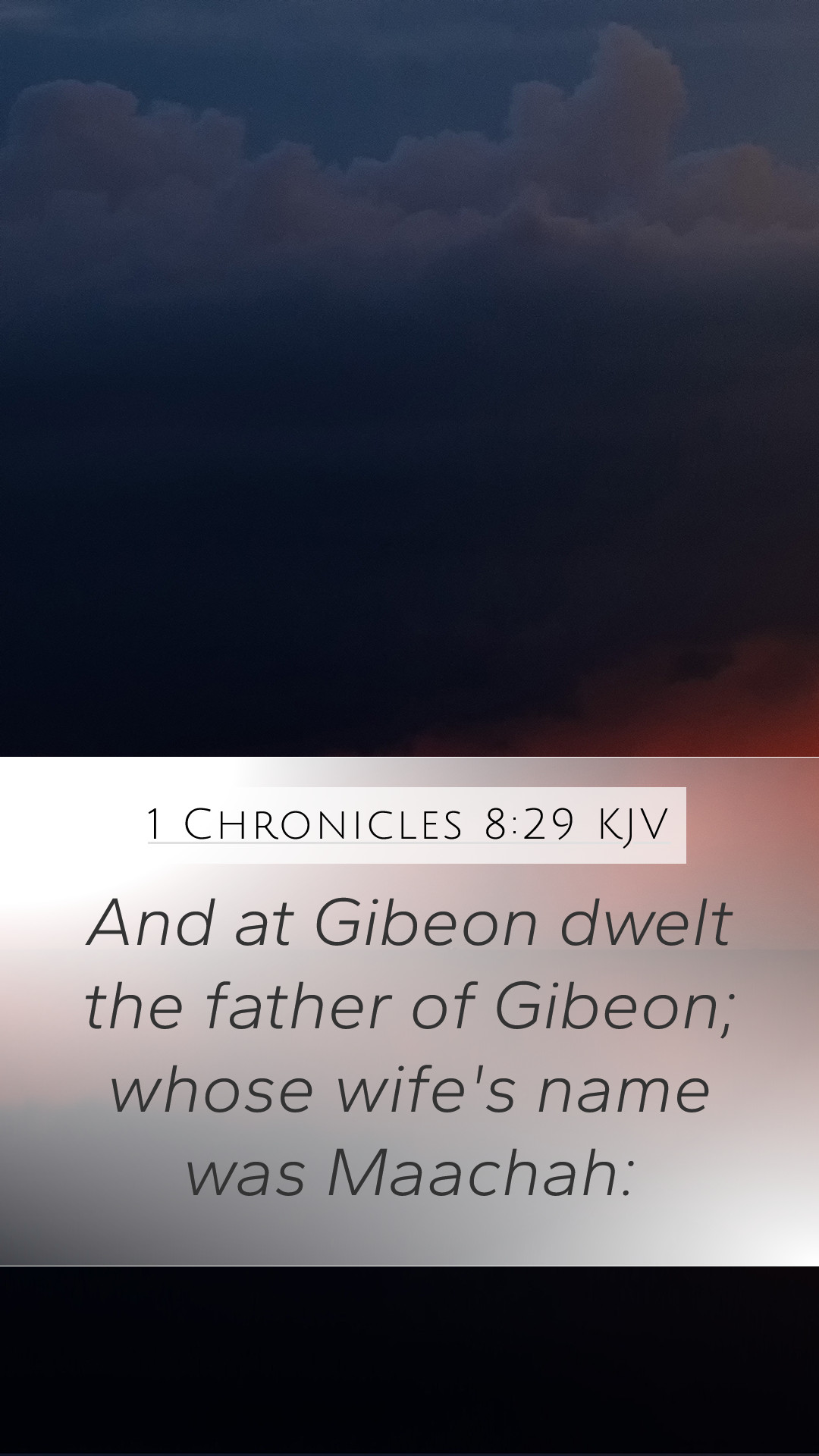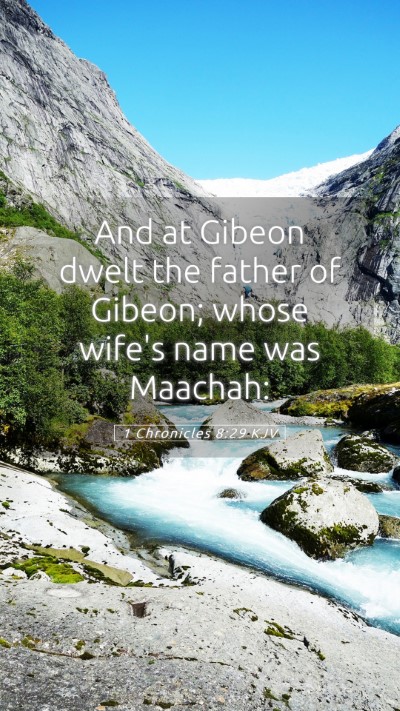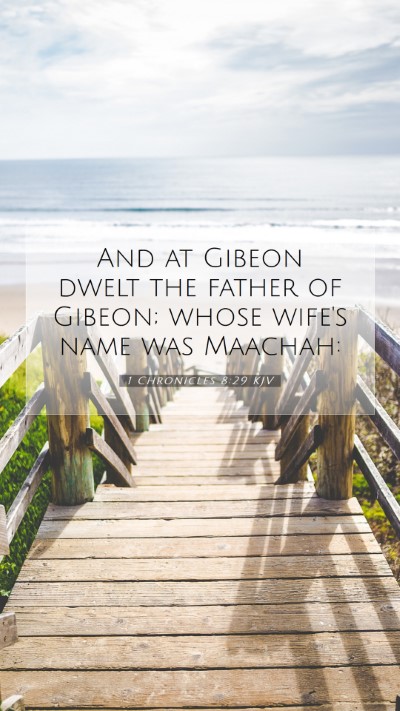Understanding 1 Chronicles 8:29
1 Chronicles 8:29 presents insights into the family lineage of King Saul, emphasizing the importance of heritage in the Israelite culture. This verse states:
“And at Gibeon dwelt the father of Gibeon; whose wife's name was Maacah.”
This passage highlights significant themes that resonate throughout the Scriptures regarding family, legacy, and the unfolding narrative of God's chosen people. Below is an exploration of the verse's meaning through various commentaries.
Insights from Public Domain Commentaries
-
Matthew Henry:
Henry comments on the importance of the mention of Gibeon as it signifies a location of both historical and spiritual significance. The Gibeonites were known for their clever deception to secure a place among God’s people. The mention of Maacah, being the wife of the father of Gibeon, adds personal dimensions to the narrative, indicating familial ties that extend beyond mere geography.
-
Albert Barnes:
Barnes provides insight into the significance of names and heritage, explaining that the genealogies in Chronicles serve to connect Israel back to Abraham, emphasizing the continuity of God's covenant. The note on Maacah as a significant figure hints at her role in the lineage, showcasing how women's names appear within genealogical listings, indicating their relevance in the culture.
-
Adam Clarke:
Clarke focuses on the context of the verse within the broader narrative of Chronicles. He discusses how these genealogies serve to establish the legitimacy of David’s reign by connecting it directly to Saul, reinforcing the continuity of monarchy in Israel. Clarke also notes the fleeting nature of life as captured in genealogies, where the legacies of individuals are preserved in scripture.
Thematic Analysis
1 Chronicles 8:29 encapsulates several theological themes:
-
The Importance of Heritage:
This verse underlines the value of family lineage in Scripture, showing how one's ancestry plays a role in God's unfolding plan. The connections made between names serve to strengthen communal identity.
-
The Continuity of God's Covenant:
The mention of Gibeon and its inhabitants reflects on the broader idea of God's covenant with Israel and how His plans are carried through generations. The genealogies tie the Israelites' present to their past promises made by God.
-
Role of Women:
Maacah's inclusion emphasizes the importance of women’s roles in biblical narratives, showcasing that their contributions and connections are essential to understanding the family tree in Israel.
Application to Daily Life
In application, 1 Chronicles 8:29 invites believers to reflect on their own heritage and the legacies that they are creating within their families. Understanding the choices made by previous generations can guide present actions and faith engagements.
Related Bible Cross References
- Joshua 9:3-15 – Discusses the Gibeonites' deception and their integration into Israel.
- 1 Chronicles 5:29 – Further references the genealogies and God’s covenants.
- 2 Samuel 21:2 – Highlights the ongoing significance of the Gibeonites in the narrative of Israel.
Conclusion
Understanding Bible verses, like 1 Chronicles 8:29, through a communal and familial lens enriches our spiritual journey. Exploring the layered meanings in Scripture cultivates a deeper appreciation for God's enduring promises. For anyone engaged in online Bible study or seeking comprehensive Bible study resources, delving into verses like this one can be enlightening. By incorporating biblical commentary and insights, groups can foster enriched discussions that lead to a greater understanding of Scripture.


